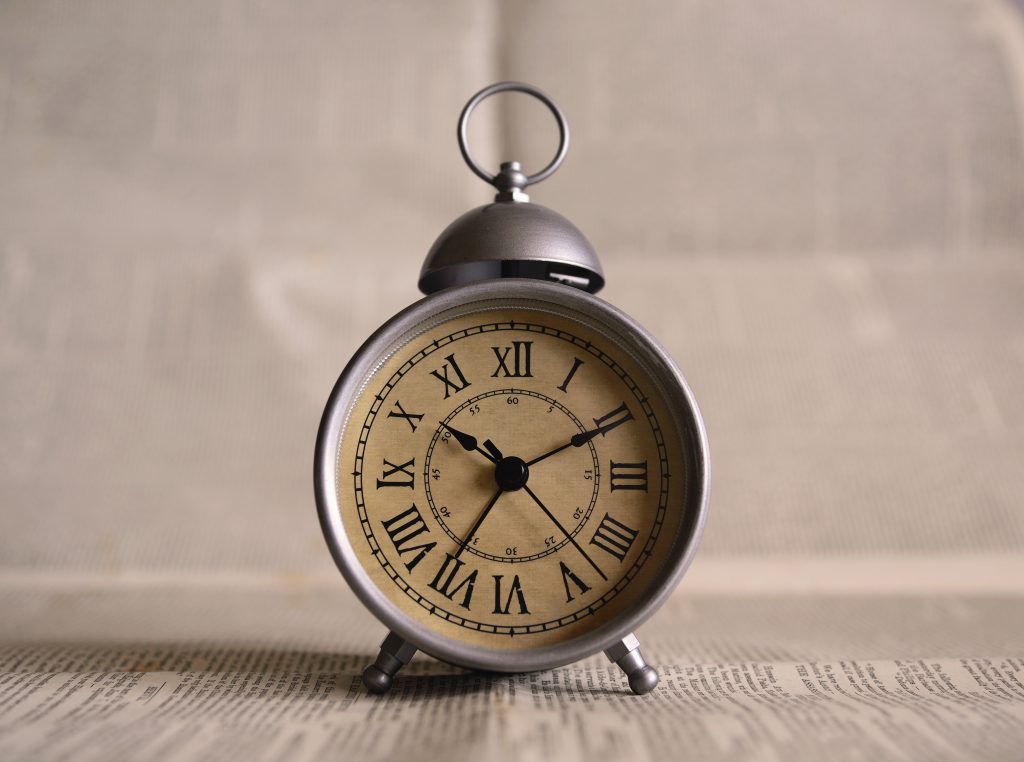 The equivalence of “dotting the i’s and crossing the t’s” in the law is making sure to comply with court procedural rules. One such basic civil court procedure rule is proper service. Proper service is critical in establishing that a court has legal jurisdiction over a defendant. The defendant has a right to know that they are being sued, and they have the right to be present at any hearing or to appear through an attorney. Without proper service, a court may dismiss a lawsuit. One can have a valid and strong claim for a lawsuit, but without proper compliance with court rules, the case may never even be heard. The importance of following procedure is highlighted in this Workers’ Compensation case heard in the Louisiana Fourth Circuit Court of Appeals.
The equivalence of “dotting the i’s and crossing the t’s” in the law is making sure to comply with court procedural rules. One such basic civil court procedure rule is proper service. Proper service is critical in establishing that a court has legal jurisdiction over a defendant. The defendant has a right to know that they are being sued, and they have the right to be present at any hearing or to appear through an attorney. Without proper service, a court may dismiss a lawsuit. One can have a valid and strong claim for a lawsuit, but without proper compliance with court rules, the case may never even be heard. The importance of following procedure is highlighted in this Workers’ Compensation case heard in the Louisiana Fourth Circuit Court of Appeals.
The issue revolves around whether appellant A-1 St. Bernard Taxi & Delivery (“A-1”) was (1) properly served and (2) whether the Office of Workers’ Compensation erred in rendering judgment in Veronica Gordon’s claims for compensation. Ms. Gordon was involved in a car accident on May 2, 2015, while working for defendant A-1 as an independent contractor. She suffered injuries to her left arm, shoulder, neck, and back and filed a claim for compensation on August 7, 2015 (the “Original Claim”).
The Office of Workers’ Compensation (OWC) notified Ms. Gordon’s attorney that service on A-1 was unable to be performed at the address Ms. Gordon listed an incorrect address for A-1 in her Original Claim. Ms. Gordon listed a second incorrect address on an amended claim that also led to the failure of service. Ms. Gordon filed a motion to appoint a special process server and filed a second amended claim. In this claim, she stated that the special process server tried and failed several times to serve A-1. The OWC appointed the Secretary of State as A-1’s agent for service of process. The claim was sent to A-1’s last known address and the case moved for trial. Neither A-1 nor counsel for A-1 was present. The OWC ruled in favor of Ms. Gordon and denied A-1’s motion for a new trial, which A-1 appealed.
 Louisiana Personal Injury Lawyer Blog
Louisiana Personal Injury Lawyer Blog


 Summary judgments are a common tool in litigation to not only expedite the drawn out trial process, but they can also be used to cut down on the cost of a lawsuit. Yet, there are different standards about what kinds of documents can and cannot be considered when a party makes a motion for summary judgment. For two Baton Rouge individuals, their claims against an insurance company survived because of this technicality.
Summary judgments are a common tool in litigation to not only expedite the drawn out trial process, but they can also be used to cut down on the cost of a lawsuit. Yet, there are different standards about what kinds of documents can and cannot be considered when a party makes a motion for summary judgment. For two Baton Rouge individuals, their claims against an insurance company survived because of this technicality. On TV, lawyers are often shown dramatically acting out speeches in courtrooms and confronting witnesses. Those litigators do often have to speak and cross examine individuals, but in reality, much of an attorney’s role is to make sure the procedural and pleading aspects of a lawsuit are done correctly. Some of this procedure is based on a strategy of knowing what court to file a claim in in order to gain the best opportunity for recovery for your client. A St. Mary Parish School crossing guard’s lawsuit was dismissed when the court found that he had already filed an identical claim which had been dismissed.
On TV, lawyers are often shown dramatically acting out speeches in courtrooms and confronting witnesses. Those litigators do often have to speak and cross examine individuals, but in reality, much of an attorney’s role is to make sure the procedural and pleading aspects of a lawsuit are done correctly. Some of this procedure is based on a strategy of knowing what court to file a claim in in order to gain the best opportunity for recovery for your client. A St. Mary Parish School crossing guard’s lawsuit was dismissed when the court found that he had already filed an identical claim which had been dismissed. Perhaps one of the biggest myths about the law is that you can bring a lawsuit anywhere about anything. In reality, a court must have jurisdiction in order to hear a case. Jurisdiction is the power of a legal body to make binding decisions over the people involved. In addition to having jurisdiction over the parties to the case, the court must also have subject matter jurisdiction. Subject matter jurisdiction is the ability for a court to hear the
Perhaps one of the biggest myths about the law is that you can bring a lawsuit anywhere about anything. In reality, a court must have jurisdiction in order to hear a case. Jurisdiction is the power of a legal body to make binding decisions over the people involved. In addition to having jurisdiction over the parties to the case, the court must also have subject matter jurisdiction. Subject matter jurisdiction is the ability for a court to hear the  Sometimes, the most complicated cases can have the most simple resolution. For West Baton Rouge plaintiffs who sued mining companies for extracting resources underneath their property without their knowledge, the ultimate outcome of the lawsuit rested on the plain meaning of statutory language.
Sometimes, the most complicated cases can have the most simple resolution. For West Baton Rouge plaintiffs who sued mining companies for extracting resources underneath their property without their knowledge, the ultimate outcome of the lawsuit rested on the plain meaning of statutory language. Sometimes, there are situations that appear to have an obvious result. Person A causes injury to Person B and B sues A. All the evidence points to A being at fault and B being hurt and in need of recovery. However, what if in the middle of the case, the court held that B was not hurt at all and therefore did not need to recover? How does a result like this even come about? What does B do? This situation is illustrated in a case arising from a New Orleans motor vehicle accident from 2014.
Sometimes, there are situations that appear to have an obvious result. Person A causes injury to Person B and B sues A. All the evidence points to A being at fault and B being hurt and in need of recovery. However, what if in the middle of the case, the court held that B was not hurt at all and therefore did not need to recover? How does a result like this even come about? What does B do? This situation is illustrated in a case arising from a New Orleans motor vehicle accident from 2014. Freedom of speech is one of America’s most celebrated rights. However, it does not mean that courts tolerate all types of speech. After all, we have all heard that the freedom of speech does not allow an individual to falsely yell fire in a crowded theater. Despite there being restrictions, courts take the freedom of speech extremely seriously and will not allow it to be encroached simply because someone felt offended by a certain use of free speech.
Freedom of speech is one of America’s most celebrated rights. However, it does not mean that courts tolerate all types of speech. After all, we have all heard that the freedom of speech does not allow an individual to falsely yell fire in a crowded theater. Despite there being restrictions, courts take the freedom of speech extremely seriously and will not allow it to be encroached simply because someone felt offended by a certain use of free speech.  You lose your case. However, your lawyer tells you not to despair. She tells you that you can appeal the trial court’s judgment at the appellate court. However, it is not always that simple. Appellate courts, like trial courts, do not just accept every single case that comes their way. They must first have jurisdiction over a case, which simply means that they must meet certain requirements to hear the case. Without jurisdiction, an appellate court will be unable to take your case even if your claim may be legitimate.
You lose your case. However, your lawyer tells you not to despair. She tells you that you can appeal the trial court’s judgment at the appellate court. However, it is not always that simple. Appellate courts, like trial courts, do not just accept every single case that comes their way. They must first have jurisdiction over a case, which simply means that they must meet certain requirements to hear the case. Without jurisdiction, an appellate court will be unable to take your case even if your claim may be legitimate.  Trials can be extremely expensive. One of the most expensive parts of a trial can be the costs associated with taking depositions. Therefore, it is in a party’s best interest to recuperate those costs in the aftermath of a successful outcome. In fact, it is the general rule that included in the damages of a successful party are the costs associated with depositions. However, a trial court may sometimes erroneously or negligently include such costs in a party’s damages.
Trials can be extremely expensive. One of the most expensive parts of a trial can be the costs associated with taking depositions. Therefore, it is in a party’s best interest to recuperate those costs in the aftermath of a successful outcome. In fact, it is the general rule that included in the damages of a successful party are the costs associated with depositions. However, a trial court may sometimes erroneously or negligently include such costs in a party’s damages.  When a lawsuit is filed for an injury, most people assume that the claim will be sorted out in court in a timely manner. Sometimes, however, a case can get significantly delayed by years, even before a trial has occurred. In these instances, it is also possible that the case becomes “abandoned” if neither side takes any action towards furthering the course of the lawsuit. For one West Feliciana woman, the defense tried to do just that and claimed case abandonment.
When a lawsuit is filed for an injury, most people assume that the claim will be sorted out in court in a timely manner. Sometimes, however, a case can get significantly delayed by years, even before a trial has occurred. In these instances, it is also possible that the case becomes “abandoned” if neither side takes any action towards furthering the course of the lawsuit. For one West Feliciana woman, the defense tried to do just that and claimed case abandonment.